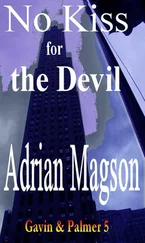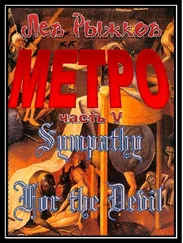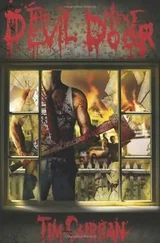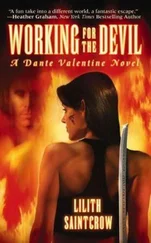“Four thou-? That’s incredible!”
The salesman looked pleased with himself. “Our operatives will be glad of the work, sir.” He grinned. “We pride ourselves on servicing our wholesale customers.”
The wind blew cold as Peter left the pub, setting the old sign swinging. It didn’t look much like a dirty donkey, thought Peter. More like a pale horse.
Peter was drifting off to sleep that night, mentally rehearsing his coronation speech, when a thought drifted into his head and hung around. It would not go away. Could he-could he possibly be passing up an even larger saving than he already had? Could he be missing out on a bargain?
Peter climbed out of bed and walked over to the phone. It was almost 3 A.M., but even so-
His Yellow Pages lay open where he had left it the previous Saturday, and he dialled the number.
The phone seemed to ring forever. There was a click and a bored voice said, “Burke Hare Ketch. Can I help you?”
“I hope I’m not phoning too late-” he began.
“Of course not, sir.”
“I was wondering if I could speak to Mr. Kemble.”
“Can you hold? I’ll see if he’s available.”
Peter waited for a couple of minutes, listening to the ghostly crackles and whispers that always echo down empty phone lines.
“Are you there, caller?”
“Yes, I’m here.”
“Putting you through.” There was a buzz, then “Kemble speaking.”
“Ah, Mr. Kemble. Hello. Sorry if I got you out of bed or anything. This is, um, Peter Pinter.”
“Yes, Mr. Pinter?”
“Well, I’m sorry it’s so late, only I was wondering-How much would it cost to kill everybody? Everybody in the world?”
“Everybody? All the people?”
“Yes. How much? I mean, for an order like that, you’d have to have some kind of a big discount. How much would it be? For everyone?”
“Nothing at all, Mr. Pinter.”
“You mean you wouldn’t do it?”
“I mean we’d do it for nothing, Mr. Pinter. We only have to be asked, you see. We always have to be asked.”
Peter was puzzled. “But-when would you start?”
“Start? Right away. Now. We’ve been ready for a long time. But we had to be asked, Mr. Pinter. Good night. It has been a pleasure doing business with you.”
The line went dead.
Peter felt strange. Everything seemed very distant. He wanted to sit down. What on earth had the man meant? “We always have to be asked.” It was definitely strange. Nobody does anything for nothing in this world; he had a good mind to phone Kemble back and call the whole thing off. Perhaps he had overreacted, perhaps there was a perfectly innocent reason why Archie and Gwendolyn had entered the stockroom together. He would talk to her, that’s what he’d do. He’d talk to Gwennie first thing tomorrow morning-
That was when the noises started.
Odd cries from across the street. A catfight? Foxes probably. He hoped someone would throw a shoe at them. Then, from the corridor outside his flat, he heard a muffled clumping, as if someone were dragging something very heavy along the floor. It stopped. Someone knocked on his door, twice, very softly.
Outside his window the cries were getting louder. Peter sat in his chair, knowing that somehow, somewhere, he had missed something. Something important. The knocking redoubled. He was thankful that he always locked and chained his door at night.
They’d been ready for a long time, but they had to be asked-
Details by China Miéville
When the boy upstairs got hold of a pellet gun and fired snips of potato at passing cars, I took a turn. I was part of everything. I wasn’t an outsider. But I wouldn’t join in when my friends went to the yellow house to scribble on the bricks and listen at the windows. One girl teased me about it, but everyone else told her to shut up. They defended me, even though they didn’t understand why I wouldn’t come.
I don’t remember a time before I visited the yellow house for my mother.
On Wednesday mornings at about nine o’clock I would open the front door of the decrepit building with a key from the bunch my mother had given me. Inside was a hall and two doors, one broken and leading to splintering stairs. I would unlock the other and enter the dark flat. The corridor was unlit and smelled of old, wet air. I never walked even two steps down that hallway. Rot and shadows merged, and it looked as if the passage disappeared a few yards from me. The door to Mrs. Miller’s room was right in front of me. I would lean forward and knock.
Quite often there were signs that someone else had been there recently. Scuffed dust and bits of litter. Sometimes I was not alone. There were two other children I sometimes saw slipping in or out of the house. There were a handful of adults who visited Mrs. Miller.
I might find one or another of them in the hallway outside the door to her flat, or even in the flat itself, slouching in the crumbling dark hallway. They would be slumped over or reading some cheap-looking book or swearing loudly as they waited.
There was a young Asian woman who wore a lot of makeup and smoked obsessively. She ignored me totally. There were two drunks who came sometimes. One would greet me boisterously and incomprehensibly, raising his arms as if he wanted to hug me into his stinking, stinking jumper. I would grin and wave nervously, walk past him. The other seemed alternately melancholic and angry. Occasionally I’d meet him by the door to Mrs. Miller’s room, swearing in a strong cockney accent. I remember the first time I saw him, he was standing there, his red face contorted, slurring and moaning loudly.
“Come on, you old slag,” he wailed, “you sodding old slag. Come on, please, you cow.”
His words scared me but his tone was wheedling, and I realized I could hear her voice, Mrs. Miller’s voice, from inside the room, answering him back. She did not sound frightened or angry.
I hung back, not sure what to do, and she kept speaking, and eventually the drunken man shambled miserably away. And then I could continue as usual.
I asked my mother once if I could have any of Mrs. Miller’s food. She laughed very hard and shook her head. In all the Wednesdays of bringing the food over, I never even dipped my finger in to suck it.
My mum spent an hour every Tuesday night making the stuff up. She dissolved a bit of gelatin or cornflour with some milk, threw in a load of sugar or flavorings, and crushed a clutch of vitamin pills into the mess. She stirred it until it thickened and let it set in a plain white plastic bowl. In the morning it would be a kind of strong-smelling custard that my mother put a dishcloth over and gave me, along with a list of any questions or requests for Mrs. Miller and sometimes a plastic bucket full of white paint.
So I would stand in front of Mrs. Miller’s door, knocking, with a bowl at my feet. I’d hear a shifting and then her voice from close by the door.
“Hello,” she would call, and then say my name a couple of times. “Have you my breakfast? Are you ready?”
I would creep up close to the door and hold the food ready. I would tell her I was.
Mrs. Miller would slowly count to three. On three, the door suddenly swung open a snatch, just a foot or two, and I thrust my bowl into the gap. She grabbed it and slammed the door quickly in my face.
I couldn’t see very much inside the room. The door was open for less than a second. My strongest impression was of the whiteness of the walls. Mrs. Miller’s sleeves were white, too, and made of plastic. I never got much of a glimpse at her face, but what I saw was unmemorable. A middle-aged woman’s eager face.
If I had a bucket full of paint, we would run through the routine again. Then I would sit cross-legged in front of her door and listen to her eat.
Читать дальше












